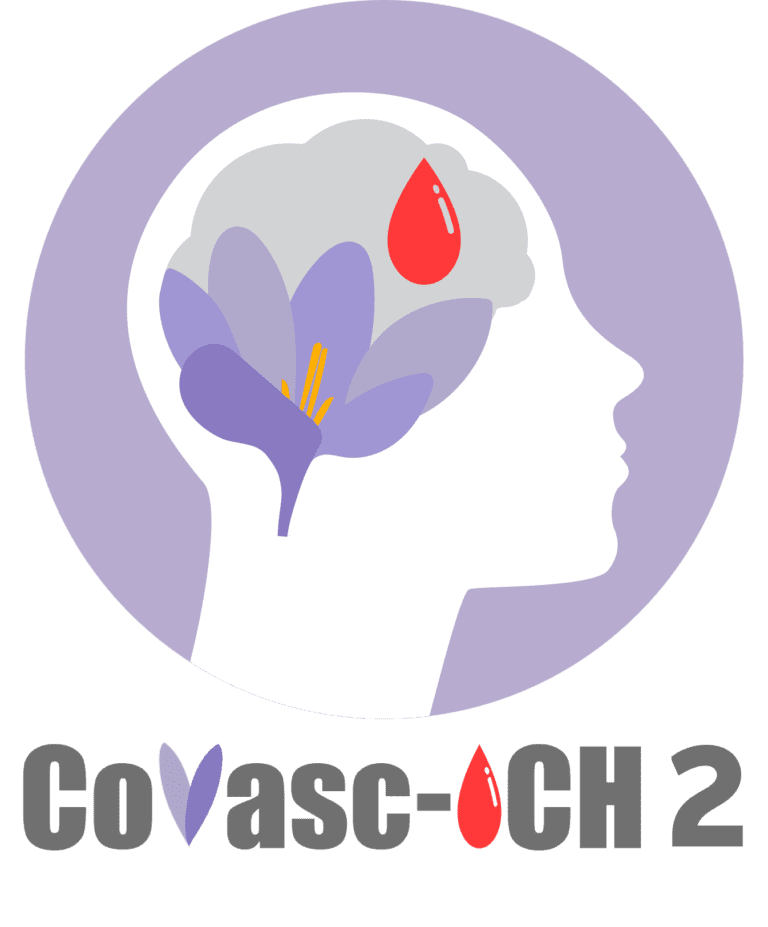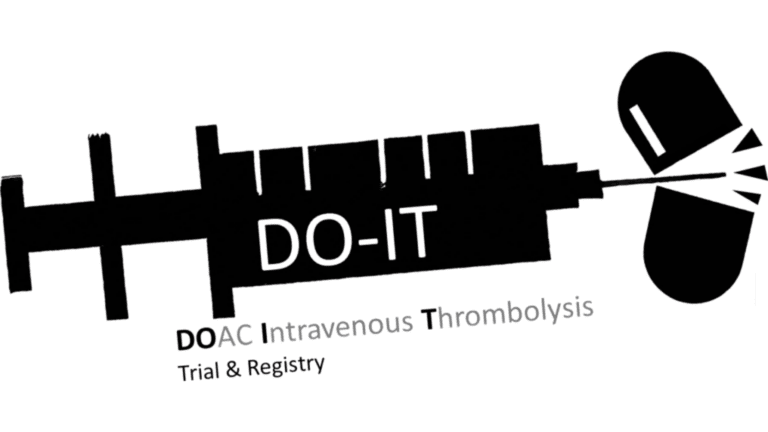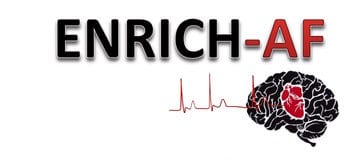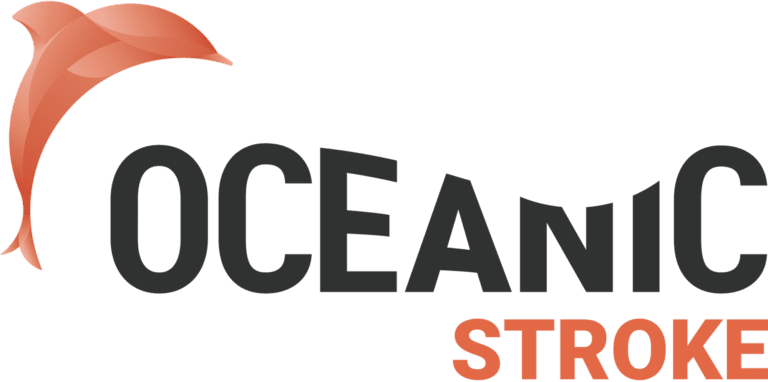Brain Health & Stroke
- Homepage
- >
- Brain Health & Stroke
Emerging evidence shows that treating vascular disease and vascular risk factors can reduce cognitive and functional decline. Stroke and cognition researchers at PHRI are conducting, and collaborating in, international work on dementia and vascular disease.
A leader in stroke research for decades – including our landmark study, INTERSTROKE, which identified the 10 greatest risk factors responsible for 90% of strokes globally – PHRI’s high-impact work in this area includes the development of an optimal cognitive test for international clinical trials, and collaboration in the first large stroke registry in a developing country (India).
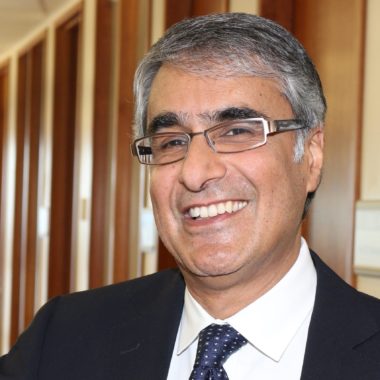
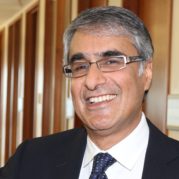
Mike Sharma
Senior Scientist
Mike Sharma is Professor of Medicine (Neurology) at McMaster University and a vascular neurologist at Hamilton Health Sciences. He holds the Michael G DeGroote Chair in Stroke Prevention and leads the Brain Health and Stroke Program at PHRI. He is the Medical Director of the Regional Stroke Program at HHS.
After neurology training at Western, a stroke fellowship at the Montreal Neurologic Institute and the University of Ottawa, he completed an MSc in Clinical Epidemiology. He founded the Stroke Program at the University of Ottawa and joined PHRI in 2013. Mike is the Past Chair of the Canadian Stroke Consortium and was the Deputy Director of Clinical Affairs and Policy at the Canadian Stroke Network. He has held leadership positions in trials of novel antithrombotic approaches to stroke prevention and imaging/cognitive outcomes in large trials of stroke prevention. He led the imaging substudies in COMPASS and NAVIGATE ESUS that explored the impact of interventions on covert vascular disease as well as cognitive outcomes. Building on these findings he has been heavily involved with the development of FXIa inhibitors for stroke prevention. He led the multinational Phase II dose ranging AXIOMATIC SSP trial that established a dose of the small molecule FXIa inhibitor milvexian for stroke prevention. He currently leads the pivotal efficacy trial OCEANIC STROKE that seeks to establish the benefit of Asundexian and FXIa inhibition in secondary stroke prevention. In addition to other ongoing research, he and Raed Joundi lead PROSPECT – an international cohort study examining the determinants of cognitive and functional decline in those with a recent stroke.


Ashkan Shoamanesh
Senior Scientist
Ashkan Shoamanesh is an Associate Professor of Medicine (Division of Neurology) and a stroke neurologist at McMaster University, where he holds the Marta and Owen Boris Chair in Stroke Research and Care. He is the founding Director of the Hemorrhagic Stroke Research Program and a Senior Scientist at the Population Health Research Institute.
Shoamanesh’s clinical trials program focuses on advancing treatments and establishing new standards of care to prevent stroke or reduce stroke-related death and disability. He is the principal investigator (PI) or Co-PI of multiple international multicentre randomized trials, including ENRICH-AF (NCT03950076; Lancet 2023), OCEANIC-STROKE (NCT05686070), SATURN-MRI (NCT03936361), CoVasc-ICH 2 (NCT06587737 ), and INTERCEPT (NCT05723926). He has also held central leadership roles in the ANNEXa-I (NEJM 2024), PACIFIC-STROKE (Lancet 2022), and NAVIGATE-ESUS (NEJM 2018) trials. Shoamanesh is the founding Chair of the Canadian Hemorrhagic Stroke Trials Initiative (CoHESIVE), and was the lead author of the first Canadian Stroke Best Practice Recommendations on the Management of Spontaneous Intracerebral Hemorrhage.
Shoamanesh has published over 170 peer-reviewed manuscripts in top-tier scientific journals. He serves on the editorial boards of Stroke, the International Journal of Stroke, and the Canadian Journal of Neurological Sciences. He is an active contributor to international scientific meetings and previously co-chaired the World Stroke Congress (World Stroke Organization) and the World Intracranial Hemorrhage Conference.
His research program receives funding from several bodies, including the Canadian Institutes of Health Research, National Institutes of Health, Heart and Stroke Foundation of Canada, Brain Canada, the Australian Government Medical Research Future Fund, and various industry partners. His contributions have been recognized by numerous prestigious national and international accolades from esteemed organizations, such as the American Academy of Neurology (Pessin Award), American Heart/Stroke Association (Globus Award, Siekert Award, Dudley White Award), American Neurological Association (Denny-Brown Award), European Stroke Organization (Young Investigator Award, Scientific Excellence Award), Heart and Stroke Foundation of Canada (National New Investigator Award, Barnett Scholarship) and the World Stroke Organization (Future Leaders Program).


Stuart Connolly
Stuart Connolly
Stuart Connolly is a Professor of Medicine at McMaster University and a cardiac electrophysiologist at Hamilton Health Sciences. He became a faculty member at McMaster University in 1983 and was awarded a full professorship in 1994. He was also appointed as the inaugural holder of the Salim Yusuf Chair in Cardiology at McMaster University.
He has published more than 270 scientific articles in the field, and is currently a member of the editorial boards for a number of prominent cardiology journals, including Heart, the American Heart Journal and the Journal of Pacing and Electrophysiology. His main research interests are focused on the evaluation of treatments for heart rhythm disorders. His academic career has been largely devoted to the design and execution of controlled clinical trials in this area.
He holds a Masters degree from Fordham University, New York, and an MD from McGill University in Montreal. He received his specialist training in cardiology at the University of Toronto and at Stanford University.
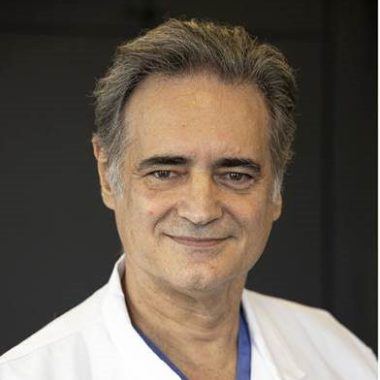

Pierre Amarenco
Senior International Fellow
A Professor of Neurology at Paris University in Paris, France, Pierre Amarenco is the founder of the department of Neurology and Stroke Center as well as of SOS-TIA clinic at Bichat university hospital in Paris.
His academic work has been in stroke prevention. He has published more than 450 research papers, reviews and book chapters; with significant contributions to the descriptions of cerebellar infarction, aortic arch atherosclerosis as a cause of stroke, and genetic and metabolic risk factors for stroke.
He has contributed to the leadership of major trials including SPARCL, Treat Stroke to Target, ARCH, XANTUS, SOCRATES, THALES, SPIRE, PROMINENT, RIISC and THETIS trials involving antithrombotics and lipid lowering agents as well as acute intracranial revascularization (RECANALISE). He’s led TIAregistry.org which resulted in insights into the outcomes of patients presenting with TIA, and is involved in the validation of new targets in animal models of ischemic stroke.


Jackie Bosch
Scientist
Jackie Bosch is the Assistant Dean of the McMaster Occupational Therapy Program and a PHRI Scientist. She has a Bachelor’s degree in Occupational Therapy, a Master’s degree in Clinical Epidemiology and Biostatistics, and a PhD in Rehabilitation Science. She also serves as a Professor in the School of Rehabilitation and has an Adjunct Appointment with the University of Galway College of Medicine, Nursing, and Health Sciences.
Her research focuses on improving functional outcomes in clinical trials, particularly for stroke survivors in low-resource settings, and enhancing clinical trial methods. Bosch has taken on leadership roles in large-scale trials such as HOPE, HOPE-TOO, HOPE-3 (NCT00468923), DREAM (NCT00095654), ORIGIN (NCT00069784), TIPS-3 (NCT01646437), and COMPASS (NCT01776424). She leads the Organized Stroke Care Across Income Levels (OSCAIL) group, which has conducted a proof-of-concept study implementing key aspects of stroke unit care in hospitals within low-resource settings. Currently, the OSCAIL group is working on a community-based study aimed at improving outcomes for stroke survivors in these challenging environments. Bosch is also interested in optimizing how clinical trials are conducted, especially by finding new ways to make the start-up and execution processes more efficient.
Jackie Bosch has published 184 articles and received several awards, including the Lorna Reimer Award for Leadership from the Canadian Occupational Therapy Foundation in 2019 and the Faculty of Health Sciences, McMaster University, Programs Award for Graduate Students in 2014.
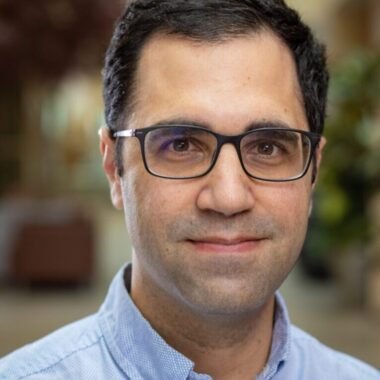

Raed Joundi
Scientist
Raed Joundi is a stroke neurologist at Hamilton Health Sciences, Assistant Professor in the Department of Medicine (Division of Neurology) at McMaster University, and Scientist in the Brain Health research program at PHRI.
He obtained his undergraduate degree from the University of Manitoba, MD from Queen’s University, DPhil from Oxford University on a Rhodes Scholarship, and neurology residency training at the University of Toronto. He then completed a stroke fellowship and MSc in Clinical Epidemiology at the University of Calgary under Dr Eric Smith supported by a CIHR Fellowship Grant.
He received the Heart & Stroke Foundation New Investigator Award in 2024 along with the Henry J.M. Barnett Scholarship for the highest rating in cerebrovascular research. He obtained the Vascular Cognitive Impairment Award and the Paul Dudley White Award from the American Heart Association, the Young Investigator Award from the World Stroke Organization, a Department of Medicine Career Award, and a Division of Neurology residency teaching award.
He is currently the Anne Marie Brune/PHRI Chair in Vascular Dementia. His main academic interests are in the vascular drivers of cognitive impairment and dementia, stroke prevention, covert cerebrovascular disease, and post-stroke cognition, function, and quality of life. He and Mike Sharma lead PROSPECT – an international cohort study examining the trajectories and determinants of cognitive and functional impairment after stroke – and the MRI sub-study of the OCEANIC-STROKE trial – investigating the effect of FXIa inhibitor asundexian on brain infarcts.


Aristeidis Katsanos
Scientist
Aristeidis Katsanos, MD, PhD is a Vascular Neurologist, Assistant Professor at the McMaster University and Investigator at the Population Health Research Institute, Hamilton, ON, Canada. His research focuses on emerging neurosonology applications and the evidence-based evaluation of novel therapies in acute stroke treatment and secondary stroke prevention.
He has published more than 250 papers in high-impact medical journals to date and currently serves as the Co-PI of two phase 2 randomized controlled clinical trials evaluating optimal blood pressure control after endovascular thrombectomy (DETECT; NCT04484350) and the use of colchicine for the prevention of vascular events after an acute intracerebral hemorrhage (CoVasc-ICH; NCT05159219).
He received the Young Investigator Award from the European Stroke Organisation, New Investigator Award from the Heart & Stroke Foundation Canada and the EJ Moran Campbell Award from the Department of Medicine, McMaster University. He serves as an Academic Editor for PLoS One, Associate Editor for Frontiers in Neurology, and Assistant Editor for Stroke.


Kanjana Perera
Scientist
Kanjana (Sashi) Perera is a Scientist in the Brain Health and Stroke research program at PHRI, Assistant Professor, Medicine (neurology), McMaster University, and a stroke neurologist at Hamilton Health Sciences. Her main research focus is on secondary stroke prevention, cryptogenic stroke, and uncommon causes of stroke and the optimization of clinical care in this patient population.
She has served as Principal Investigator and Co-Investigator for Phase II and III clinical trials, and is on the adjudication committees for international multicenter stroke/cardiovascular trials. She has won research awards, and her work has been published in high-impact medical journals. She obtained her medical degree from Sri Lanka with Honors for academic excellence. She completed her training in Neurology at the University of Western Ontario in 2013 and subsequently pursued a fellowship in Stroke/Vascular Neurology at McMaster University.


Luciana Catanese
Investigator
Luciana is an Associate Professor of Medicine (Neurology) at McMaster University and a Stroke neurologist at Hamilton General Hospital. She is the physician lead for hyperacute stroke services at Hamilton Health Sciences and the Central-South Stroke Network in Ontario. She is the Physician Lead of the Stroke Unit at Hamilton General Hospital and the director of the McMaster Stroke fellowship program.
She completed her training in Neurology at Boston University, followed by a fellowship in Vascular Neurology at Harvard Medical School and training in Biostatistics at Harvard University. Luciana has participated in multiple international trials testing novel therapies in acute ischemic stroke patients and has multiple publications in high impact journals, including articles in Lancet, Circulation research, JAMA Neurology. She holds several grants, is involved in the Canadian Stroke Best Practice Recommendations, and serves as an Associate Editor of the Stroke journal and a full reviewer for CIHR.
Her research interests include hyperacute stroke therapies, acute stroke neuroimaging, stroke in women, cerebrovascular complications of COVID-19 and acute management of intracranial hemorrhage.


Eric Smith
Associate Senior Scientist
Eric Smith is a Professor of Clinical Neurosciences, and the Katthy Taylor Chair in Vascular Dementia in the Department of Clinical Neurosciences, University of Calgary, and Hotchkiss Brain Institute, and a member of the Calgary Stroke program. His research program has three main components: Population studies of brain health, using neuroimaging to identify predictors of cognitive impairment and decline; biomarker studies in patients with cognitive impairment, Alzheimer’s disease and cerebral amyloid angiopathy; and quality improvement and health outcomes research in patients with stroke and intracerebral hemorrhage. His research has been funded by the Canadian Institutes for Health Research, Heart and Stroke Foundation of Canada, Alberta Innovates – Health Solutions, Canadian Stroke Network, and the U.S. National Institute of Neurological Disorders and Stroke.
He received his MD degree from McGill University in 1998 and completed a residency in Neurology at Massachusetts General Hospital and Brigham and Women’s Hospital, teaching hospitals of Harvard Medical School. A one-year fellowship in Stroke and Vascular Neurology was completed at Massachusetts General Hospital in 2003. He earned a Master of Public Health degree (MPH) from the Harvard School of Public Health in 2005.


Amanda Taylor
Associate Program Manager
Amanda Taylor is an Associate Program Manager who currently coordinates trials in stroke, and has experience conducting trials in acute coronary syndrome and arrhythmia. Amanda joined PHRI in 2007. She holds a Bachelor of Science Degree (Honours) in Neurobiology from Brock University.


Dipika Desai
Program Manager
Dipika Desai oversees many epidemiologic studies, including the South Asian birth cohort, START, the South Asian Heart Risk Assessment (SAHARA), and the Canadian Alliance for Healthy Hearts and Minds (CAHHM), as well as management assistance and oversight in the utilization of samples from a number of other studies.
She has a Bachelor’s degree in Food and Nutrition from the M S University in Baroda, India, and a Master’s degree in Human Nutrition from the University of British Columbia.


Jodi Miller
Research Project Manager III
Jodi Miller has more than 15 years experience in academic research. She has been at PHRI since 2012 where she has coordinated large international industry and investigator initiated trials. In her current role she coordinates clinical trials and clinical quality assurance projects in stroke.
Jodi has a BSc in Physics from Mount Allison University and a PhD in Medical Biophysics with a focus on magnetic resonance imaging applications from Western University.


Kevin Reeh
Research Project Manager III
Kevin Reeh has more than 15 years experience in academic research. He has been at PHRI since 2014, and has been involved in the coordination of large, multicenter international clinical trials, as well as pilot/feasibility studies. These project include industry-sponsored, and investigator-initiated with industry and/or grant funding.
He has Bachelor degrees in the Biological Sciences and Health Sciences from Brock University, as well as a Masters of Science from Dalhousie University.
ongoing
CoVasc-ICH 2
Brain Health & Stroke
Data indicate that patients with intracerebral hemorrhage (ICH) are at high risk for thromboembolic events...
ongoing
DO-IT
Brain Health & Stroke
DO-IT is a multicenter, prospective, randomized, open label, blinded endpoint (PROBE) trial, evaluating the safety...
ongoing
ENRICH-AF
Brain Health & Stroke
The objective of the ENRICH-AF study is to evaluate whether edoxaban is superior to standard...
ongoing
HoBIT
Brain Health & Stroke
Head of Bed after Ischemic stroke Thrombectomy (HoBIT) is an adaptive, prospective, open‑label, blinded‑endpoint (PROBE)...
ongoing
LEAST
Brain Health & Stroke
The overall goal of Liraglutide for patients receiving Endovascular Stroke Thrombectomy (LEAST) is to test...
ongoing
OCEANIC-STROKE
Brain Health & Stroke
OCEANIC-STROKE is a multicenter, international, randomized, placebo controlled, double-blind, parallel group, event driven phase 3...


